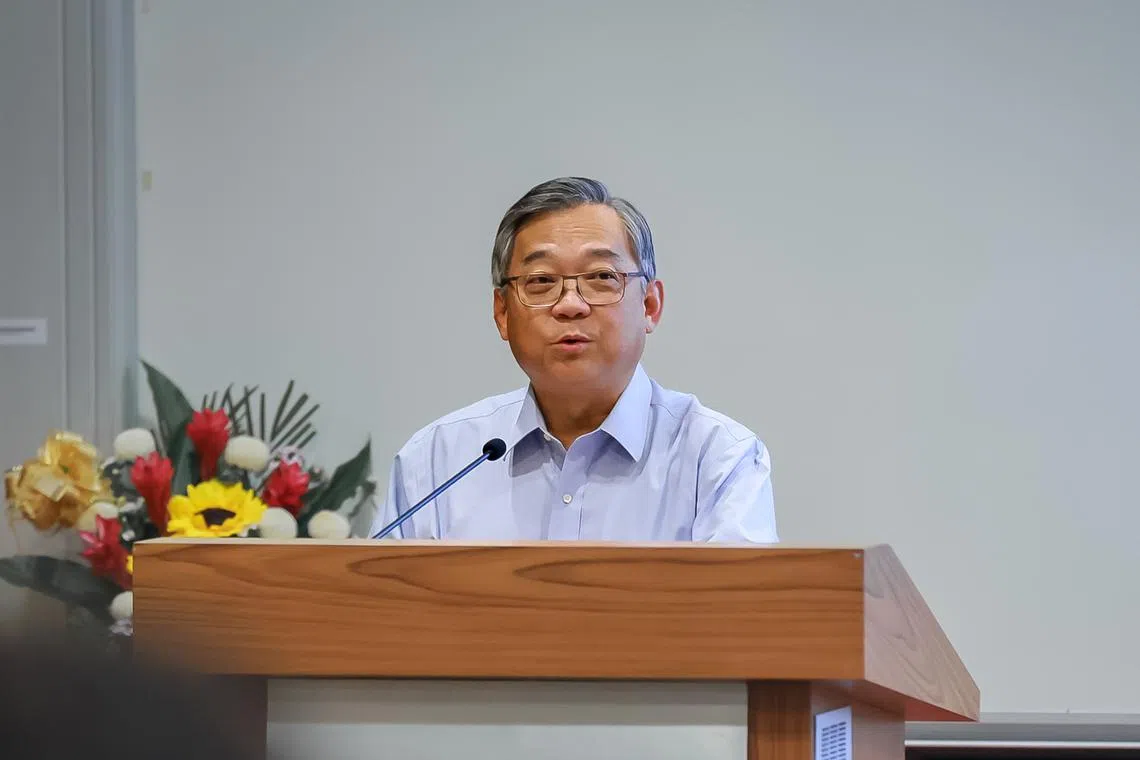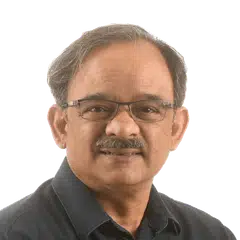Singapore needs economists to help make difficult economic policy choices: DPM Gan
Sign up now: Get ST's newsletters delivered to your inbox

DPM Gan Kim Yong said economists can help the Government make tough economic policy choices by assessing the potential trade-offs.
ST PHOTO: GAVIN FOO
SINGAPORE - Singapore will have to make tough economic policy choices to beat the odds and increase opportunities of growth and employment for its people, said Deputy Prime Minister Gan Kim Yong on Aug 30.
Speaking to economics students, he said economists can help the Government make those choices by assessing the potential trade-offs.
“Economists play a key role in supporting the Government’s policymaking, in developing our long-term economic strategies, monitoring near-term changes in our operating environment and informing our policy responses,” he said at the 16th MTI Economic Dialogue held at the NUS Shaw Foundation Alumni House.
Jointly organised by the Ministry of Trade and Industry (MTI) and local universities, the MTI Economic Dialogue is an annual event for students to gain insights into pertinent economic issues and challenges facing Singapore, as well as the role of economics in policymaking.
The theme of 2024’s dialogue is “Growing Singapore’s Economy Amidst Global Economic Fragmentation and Domestic Challenges”.
“We are entering a more complex, challenging and constrained economic climate, with major global structural shifts, near-term uncertainties and limits to our resources,” said Mr Gan, who is also Trade and Industry Minister.
“To ensure that we can continue to have good jobs, and have the resources to support our social needs, we must continue to grow our economy, by pushing the frontier on productivity and innovation, expanding our space to trade with the world, and ensuring that we have a skilled, agile and competitive workforce,” he noted.
However, to achieve those goals, Singapore will have to overcome both external challenges and domestic constraints.
Geopolitical tensions, especially the intensifying trade and technology competition between the world’s two largest economies – the United States and China – will have major implications for trade-driven economies like Singapore.
“The space to do business with the world is coming under tremendous pressure,” he said.
Many economies are also increasingly using generous state subsidies to build up their own domestic production capacities, especially in strategic industries like semiconductors and clean energy, and in the process, diverting investments there.
Meanwhile, Singapore’s ability to attract foreign investments will be challenged by the implementation of the Base Erosion and Profit Shifting (or BEPS) 2.0 initiative, which will introduce a global minimum effective tax rate of 15 per cent
DPM Gan said BEPS would blunt the impact of tax incentives offered by Singapore to foreign investors.
“We relied heavily on such tax incentives in the past to attract key investments, but now, we will need to have new tools for investment promotion.”
Potential disruptions by modern technologies will also place pressure on the Government to review its regulatory frameworks and continuously invest in the upskilling and reskilling of Singapore’s workforce, to keep up with the leaps in technology, he said.
Domestically, Singapore’s manpower constraints – slow resident workforce growth and declining fertility rates – will have implications on its ability to grow the economy.
Climate change and the Republic’s commitment to achieve net-zero emissions by 2050 will also increase the costs of doing business here, he said.
All this means Singapore will have to rely more on productivity and innovation to grow. And for that, Singapore must continue to invest in developing a skilled and agile workforce.
“We must continue to aim high, so that Singapore keeps moving forward, and our people can continue to enjoy more opportunities and a better quality of life.”
DPM Gan said that in the present challenging economic environment, economists can play a key role in supporting policymaking.
“Economists help us to understand through both economic theory and empirical evidence what drives productivity growth at the firm, sectoral and overall economy levels,” he said.
They can also assess whether there are market failures that necessitate government intervention; and recommend the strategies needed to achieve higher productivity growth over a longer period, he noted.



